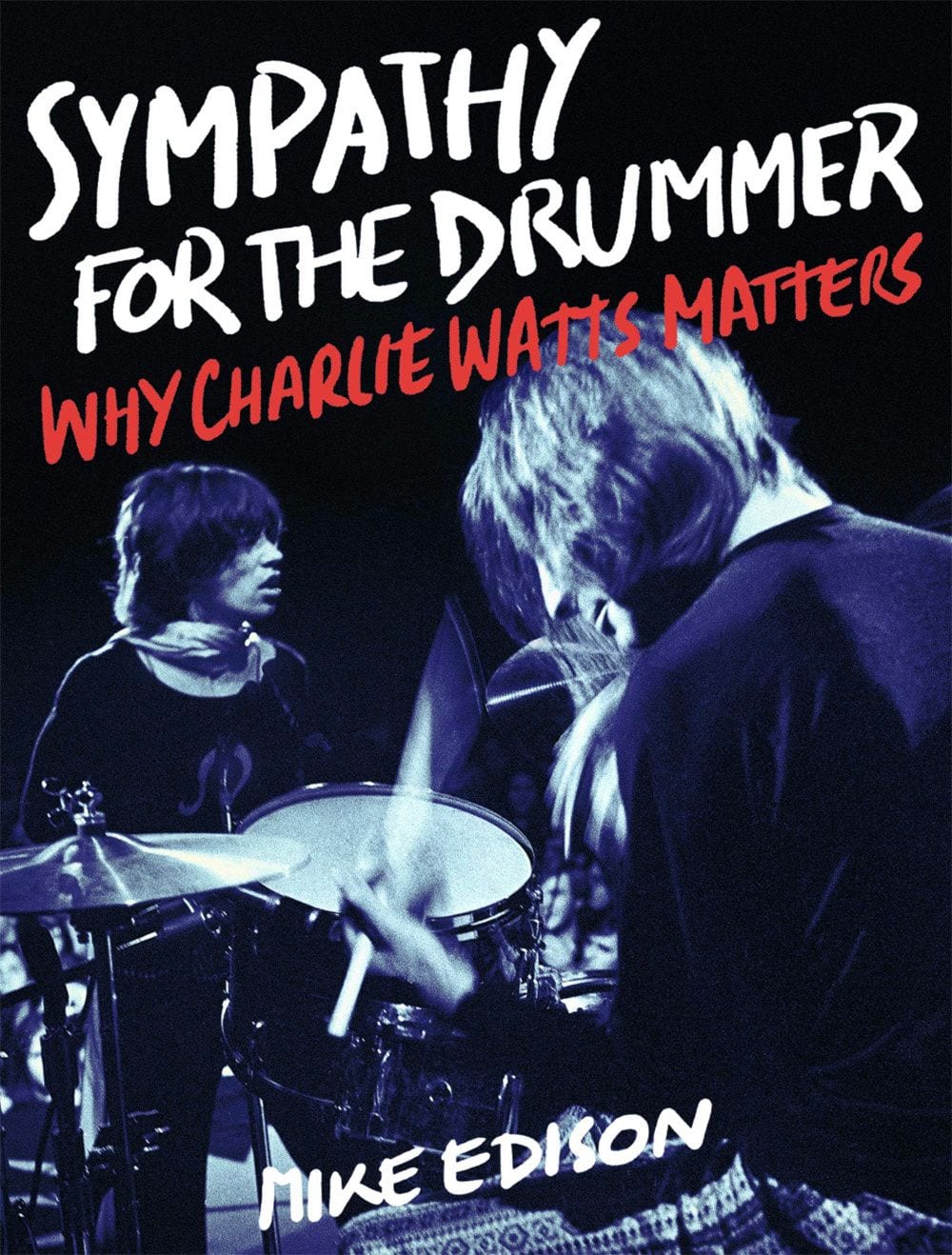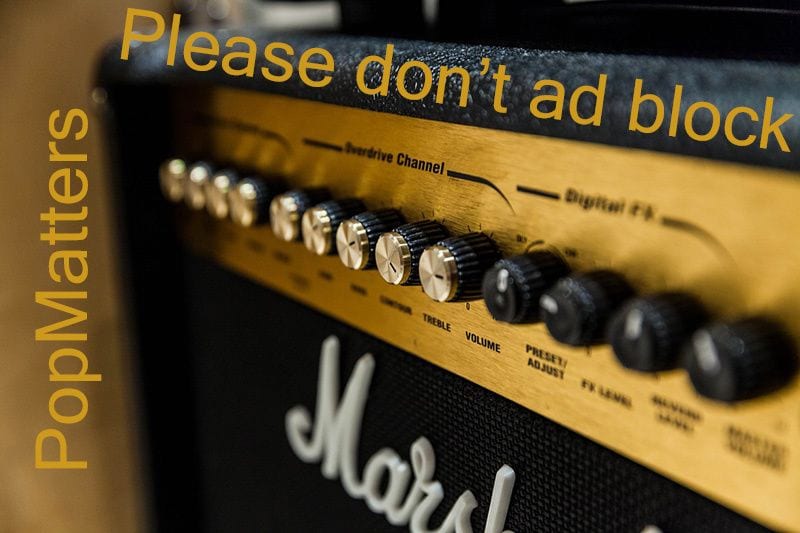
One of the more distressing questions that sometimes gets thrown around when a conversation turns to drumming is some variant of, “So, do you think Ringo Starr is a good drummer?” Invariably asked with a high degree of interest, it unintentionally reveals some fundamental lack of understanding of what it means to be “good” at anything, at all.
It’s tiring to think there may still be some lack of clarity on Ringo’s overall greatness, never mind his overall value to the Beatles as a band. And for some reason, it’s always Ringo people choose to center the question around, as opposed to similarly song-concerned drummers like Creedence Clearwater Revival’s Doug Clifford or The Kinks’s Mick Avory. As if Ringo is a stand-in for all of music’s presumed coattail riders, or as if he had somehow held the Beatles back from realizing some mysterious, unfulfilled potential. Perhaps the logic goes that a more technically accomplished drummer might have helped the Beatles be even more successful than they were?
In drumming, context matters: prog rock, punk, blues, tropicalia, pop, electronica, bop; they spin in different orbits and a drummer who excels in one style might fall flat when attempting to play in another. Why a particular drummer’s playing works on a particular song, or just how the playing of some drummers can come to define a band or even a genre, can be a slippery topic. It invariably involves trying to get your hands around elusive ideas like “feel” and “pocket”, and the sometimes minute details that can come to define a drummer’s particular style. Like songwriting itself, when it comes to dissecting drumming, the difficulty level of pinning down exactly why some things work and others don’t ranges from difficult to almost impossible.
New York writer
Mike Edison isn’t afraid to take the question on. In fact, he’s happy to. No, really; he’s been wanting to do it since he was 14-years-old. “I like to question the concept of virtuosity,” he says, “and especially the suburban jock concept of ‘who’s the best’, or ‘who’s got the biggest dick’, which has ruined so many things. It put these guitar wankers in the front of the line because people were valuing how many notes you can play per measure over whether you’re really swinging the song or not, or if any of it had any real value. What a lot of folks don’t get, or won’t until they try it, is that it is much easier to play like Rush or Yes than like the Ramones. Rush or Yes is like passing the bar exam. A lot of shitty lawyers do it all the time.”
Opinionated, more than up for a little confrontation, and agile with the razor line, Edison chose as the topic of his newest book not Ringo Starr but Rolling Stones drummer Charlie Watts.
Sympathy for the Drummer: Why Charlie Watts Matters, is a 250-page full-throated assault on the notion that, in music, more is better, and that perfection is a virtue. His romp through Watts’s discography rejects out of hand the idea that space is there to be filled up and that quantity counts for more than style, for more than groove, and for more than, as Edison calls it, “zork”.
Marshall Amp by tookapic (Pixabay License / Pixabay)
For Edison, Charlie Watts, the engine room of the Rolling Stones since their earliest days in London, defines “zork”. Stylish, humble, and idiosyncratic in his playing, Watts, a dedicated jazzbo, has driven the world’s greatest rock ‘n’ roll band for almost 60 years. As his contemporaries indulged themselves with 30-minute show-halting drum solos or expanded their drumsets to include dozens of drums, cymbals, and electronic doodads, Watts sat unimpressed, continuing to suss out the guts of a song on his impossibly modest Gretsch kit. He’s been game for whatever musical left turns the Stones have embraced; from disco to reggae to arena rock. He’s weathered his own addictions, as well as those of his bandmates, and in a unit bursting with strong personalities, he’s forged a quiet authority by mostly letting his playing doing the talking. Watts, Edison writes, “could swing a battleship.” “No Charlie,” Rolling Stones guitarist Keith Richards has said, “no Stones.”
“The thing about Charlie Watts that’s pretty amazing,” Edison says, “is how he evolved. [Led Zeppelin’s] John Bonham kind of arrived fully-formed. [The Who’s] Keith Moon was already a lunatic when he arrived. Charlie Watts was a talented guy who could swing the band, but by the time the band got to Let It Bleed, he was starting to find a little bit more freedom. The band was evolving. They were no longer just a talented cover band, they were becoming a very, very nasty blues-country-gospel experience. Then all of the sudden, on “Gimme Shelter”, that’s a very different guy than who played on their cover of “Not Fade Away”. By the time they get to “Respectable”, it’s like, ‘Holy shit, this guy is blazing.’ And he’s doing things that are totally counter-intuitive …but in the Stones, it’s what makes them.”
A lifelong Rolling Stones fanatic (and avowed non-lover of the Beatles), Edison focuses his sights on finding the poetry inside 60 years of a single drummer’s backbeats and fills. It’s an almost impossible task, the kind taken on by single-minded fanboys and archivists more interested in completing the historical record than turning out a breezy read. “I’m terrified of being boring,” Edison says, and his book, amazingly though not surprisingly, never is.
Edison is a nimble writer; his sentences dance around like Jimmy Cobb’s right hand on the ride cymbal one minute, and slam down like Al Jackson’s left on the snare, the next. He describes Mick Jagger’s maracas playing on “Street Fighting Man” as exploding like, “a Molotov cocktail hitting the front door of a bank”, and the rhythmic interplay between Keith Richards and Charlie Watts as “a conspiracy within a conspiracy”. He can spend three consecutive pages deconstructing Watts’s incorporation of a china cymbal into his set-up, and never drag. (He beautifully sums up Watts’s use of the cymbal as “a disruptive bit of poetry”.) Sympathy for the Drummer is one of the small number of books that can open your ears to just how alchemical the best rock ‘n’ roll drumming can be.On Watts’s playing on the song “Hang Fire”, he writes, “[Watts] lights up ‘Hang Fire’ with a jagged blast of accelerating sixteenth notes, throwing a ton of dirt in the air with a flurry of wildly inconsistent accents.” Of his playing on “Angie”, he writes that Watts brings, “loosey-goosey fills and the just-behind-the-beat groove that made it more genuinely unctuous than just melty and soft, because a song this saccharine could just have easily turned into a puddle of goo if Charlie didn’t bring the soul.”
For Edison, it’s all right there, if you’re only willing to listen. Watts famously speeds up and slows down within songs, and has dips and arcs in the actual volume of his drumming. On any other band’s recording, his playing would be flattened and chopped during mixing. But what to some would make Watts a liability, to Edison makes him great. “There are a lot of things Charlie Watts plays that would never make it onto someone else’s record,” he says. “In art, charming inconsistencies are very valuable. The flaws are very important. A lot of art and rock music, specifically, has suffered from somebody who is striving toward some ideal that doesn’t really exist where things are polished and there’s no mistakes. There are no flaws and everything is very homogenized and everything sounds like everything else.”
“I think baseball is a great metaphor for life,” he says. “Of course you change speeds. In pitching, the important things are location, movement, and velocity, in that order. You can’t just throw fastballs. You can throw one hundred miles per hour but if you’re just throwing over the plate people will catch up with you. Its gotta move, you’ve gotta change speeds, you’ve gotta change rhythm, you have to keep people off-base. That’s the secret of the thing, that’s the jazz of the thing.”
Edison is a drummer himself, having played for a number of bands and musicians, most notably the Raunch Hands, Sharkey’s Machine, and GG Allin. He worked as an editor at both Wrestling’s Main Event and High Times magazines in the late ’80s and ’90s, and was a contributor to a number of skin magazines, including Cheri and Penthouse Letters. He’s survived as a working artist in New York for his entire adult life, a fact he’s justifiably proud of. “The whole pornography thing, I fell into it,” he says. “I got paid what would be considered a lot of money in 2019 dollars to write dirty letters for magazines. One letter would pay my rent twice over. That job doesn’t exist anymore. I didn’t do it because I thought I was a literary outlaw writing smut, I did it for very practical reasons. I had to eat!”He attended both New York University’s Tisch Film School and the journalism program at Columbia, while ghost-writing almost three dozen “adult” paperbacks, before landing a book deal with Farrar, Straus and Giroux. “At some point I realized I had a book in me. After years of writing to make a living, writing wrestling magazines and a lot of porn, and balancing it with being a touring musician, somewhere along the line I found the thread, and more importantly my voice, and a smart editor at Farrar, Straus and Giraux saw it. I give her a lot of credit. She took a lot of shit from some pretentious coworkers shocked that she’d sign a book by a guy who wrote for Hustler, and she just said, ‘Read it.'”His memoir, I Have Fun Everywhere I Go (Faber & Faber) was released in 2009. It’s a teeth-grinding, hair-raising run through his young adult years in New York. He recounts having a shotgun shoved in his face by an itchy-fingered drug dealer, writing first-hand reviews of Times Square’s “filth palaces”, and photographing GG Allin in a Boston dumpster….in the book’s first 30 pages. “It was the last great era of pre-Internet New York City music and culture,” he says.
(from the cover of Sympathy for the Drummer)
“For the moment I was a rising star,” he says. “Some people got it, and some people were very snotty to me because I worked for Screw, because I was the editor of a professional wrestling magazine, or I was the editor of High Times. For all the people that had been writing for The Paris Review and getting a little piece of fiction in some literary magazine, I was paying my mortgage with this. I made enough money writing smut to put a down payment on a house and I had fun doing it.”His follow-up, Dirty! Dirty! Dirty! (Soft Skull) was released in 2011. He was named a writer-in-residence at the New York Public Library, and used its vast collection to tell the history of sex on the newsstand. “I went to write and research in my own space at the big library on Fifth Avenue,” he says. “It was the best, walking past the lions and up the stairs to my desk to look at dirty magazines.”
He’s maintained a remarkable pace of releases, publishing two additional books under his own name; 2012’s Bye Bye, Miss American Pie ( Interstellar Roadhouse), and 2016’s You Are a Complete Disappointment (Sterling), as well as editing and co-authoring several others. “You can laugh all you want about drug journalism or wrestling journalism,” he says, “but that’s how I learned how to write. If you had a hangover, ‘Fuck you, sit down and write your shit.’ If you felt like getting stoned and fucking off to the ballgame or the zoo, ‘Fuck you, sit down and write your shit.’ Because if you didn’t, you were not going to get hired again.”
Far from a typical biography (“Charlie Watts is born and then he was in the Rolling Stones,” Edison jokes), Sympathy for the Drummer serves as a primer both on the history of the Rolling Stones, but also, by way of tracing Watts’s influences, on the players who defined R&B, blues, country, and early rock ‘n’ roll drumming. Chess Studios drummer Fred Below, Sun Records drummer Jimmy Van Eaton, and Ray Charles’s Bill Peeples, all make appearances. Edison enthusiasm for them is infectious and it will send you running to dig up the signature tracks that he highlights for each otherwise unheralded musician.
Sympathy for the Drummer is a remarkable achievement in tone. Edison understands exactly how much weight his subject matter can bear, and never exceeds it. Fiercely opinionated, at times bombastic, he maintains enough control to allow detours into discussions on the Stones’ seemingly unending embrace of commercialism (“There’s a point where they wanted to stop attracting sexual partners and wanted to start attracting corporate sponsors with the same ardor,” he jokes), as well as just how many members of a band’s classic lineup can be replaced before it stops being the same band, without losing the reader. “Replacing a guy in cat makeup with another guy in the same cat makeup and pretending nothing has changed Is insulting to my personal conception of what makes a band a band,” he says. “It’s existentialism where there need not be any.”
He rests it all on Charlie Watts, the unflappable, ceaselessly creative presence forever at the back of the stage, yet somehow always at the center of the music being made. “You can learn to play like John Bonham,” Edison says. “You can learn to play a Rush song. Learning to play like Charlie Watts is like learning to be a poet. You can’t be taught. You sort of need to commit and live it and then you come out on the other side doing it or not.”



